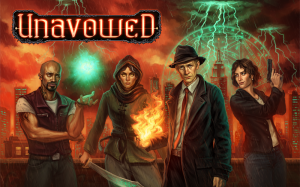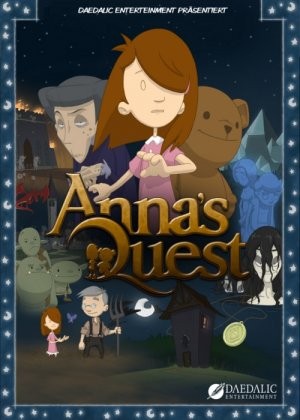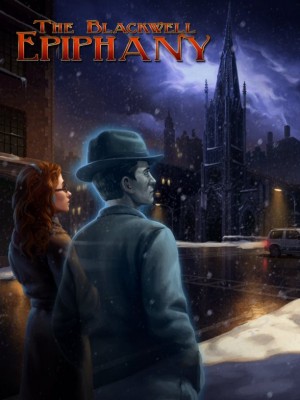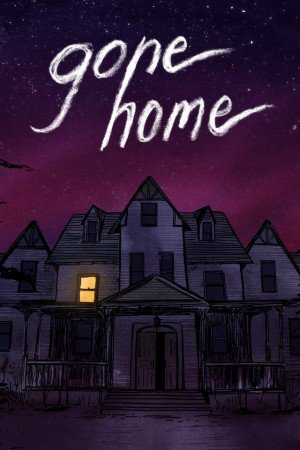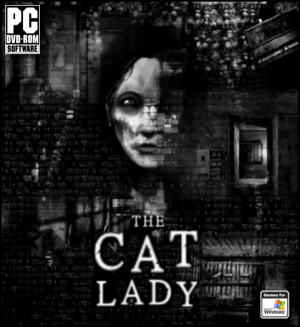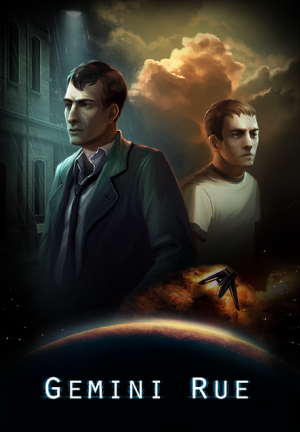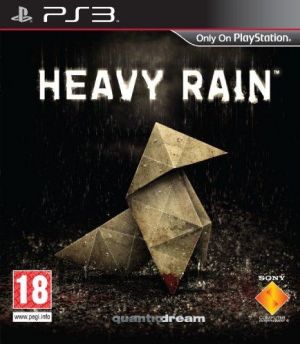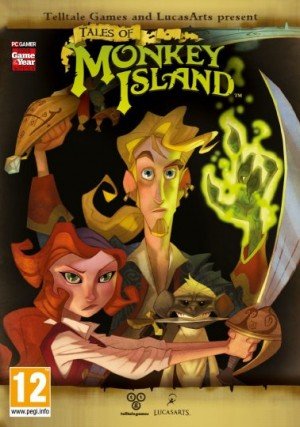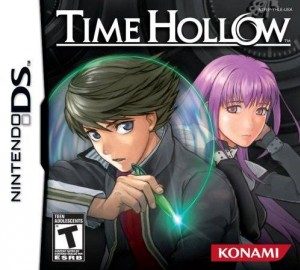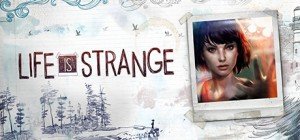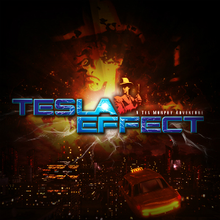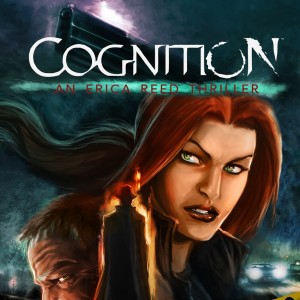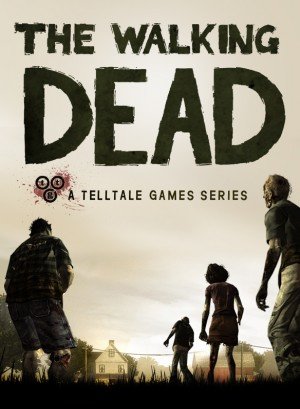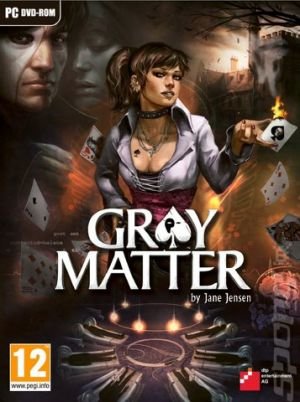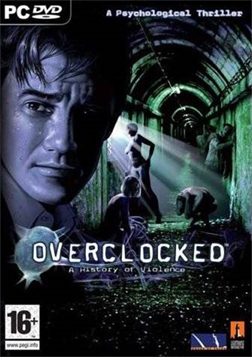Best StoryAggie Award Winners

One of the core components of any adventure, the game’s narrative must engage the player’s interest and imagination. Entertaining in its own right, a good story also immerses the player in a believable game world and serves as motivation to overcome the challenges presented. While often accompanied by quality writing, the plot is a distinct feature that may or may not be ably supported by the actual dialogue – if in fact it has dialogue at all.
» Aggie Awards - category overview
The Aggie award winners:
Whispers of a Machine (2019 winner)
It bodes well for a dystopian science fiction murder mystery when it’s able to successfully emulate certain aspects of cinematic classics in building its world. But Whispers of a Machine isn’t content to stop there, weaving in plenty of creative touches, compelling themes and intriguing characterizations of its own. This is why Clifftop Games and Faravid Interactive’s narrative collaboration resonates so strongly. Guiding Special Agent Vera Englund of the Violent Crimes unit through the investigation of a serial killer murder spree is gripping enough in its own right, but when it’s skillfully infused with thought-provoking subject matter like man versus machine and human evolution versus software upgrades, it’s instantly elevated to a far higher level of immersion. Add to this a degree of flexibility that allows for different routes based on player choice, and you’ve got a thoroughly deserving winner of our Best Story Aggie.
2019 winner of:
2019 Readers Choice' winner of:
Unavowed (2018 winner)
It all begins with you – a man or woman, your choice – being struck by lightning to exorcise the demon possessing you. There’s no slow burn here, as Wadjet Eye Games’ Unavowed plunges right into its narrative about supernatural creatures and paranormal powers. Set against the backdrop of modern day New York City, this urban fantasy explores the mysteries behind visitors from the netherworlds coexisting with us in our own. When your self-named character is freed by a half-Jinn and fire mage, you’re recruited into the titular Unavowed, a secret mystical police force. There you get to decide how to approach your investigations, with a choice of three different background professions dictating the path available to you.
Following in the tragedy-laden footsteps of the one who possessed you in order to unravel their evil deeds isn’t all this stellar point-and-click title has to offer. Along the way you’ll help recruit more people into your small supernaturally-endowed team. Each of them has their own backstory, and this game takes advantage of its interactive medium to allow you to explore these tales to whatever extent you want without detracting from the main storyline. Throw in a choice of teammates to share in your missions, multiple playable backstories for your own character, and an excellent plot twist along the way that makes you reevaluate everything you thought you knew, it’s no wonder why Unavowed spirited away this year’s Aggie Award for Best Story.
2018 winner of:
Last Day of June (2017 winner)
Like that proverbial tree falling in an empty forest, this year’s Best Story award winner sets up a curious paradox: can a wordless adventure game tell a compelling story? Ovosonico’s Last Day of June, a tender, heart-wrenching game about love and loss, proves that the answer is a resounding yes. Even with no spoken words and only a handful of written prompts, the game’s expressive character acting, rich music, clever structure, and nuanced imagery communicates a poignant and powerful message: even if fate can’t be changed and the dead can’t be spared, love lives on in the people left behind.
Loosely spun off from the music video for Steven Wilson’s Drive Home, Last Day of June follows a wheelchair-bound widower grieving the loss of his wife through his attempts to manipulate time and change the series of events leading up to her fatal car crash. Though sometimes tedious from a gameplay perspective, the repetitive time-loop premise perfectly complements the simultaneously hopeful and hopeless act of trying to cheat death, with each successful (but also failed) attempt to alter destiny raising the narrative stakes. An instrumental soundtrack adapted from Wilson’s progressive rock music and the oddball characters’ haunting gibberish vocalizations become critical to the emotional arc as the story runs its flexible yet ultimately unbreakable course. For a game about dying, Last Day of June has a lot to say about life. It does so wordlessly, emotionally, and beautifully, making it a surprising but eminently worthy choice for this year’s Best Story Aggie.
2017 winner of:
2017 Readers Choice' winner of:
- No awards won
Goetia (2016 winner)
Certain stories are great because they surprise you, others because they intrigue you, and some because they make you feel. Sushee’s Goetia is a rare example that does all three. From the moment you wake up as the ghost of 12-year-old Abigail Blackwell, with the family home now seemingly abandoned under mysterious and possibly tragic circumstances, you can't help but be curious. What happened to Blackwood Manor? Why is the nearby small English town of Oakmarsh abandoned? Where did all the people go? Why were you resurrected after your untimely fall from a window 40 years ago? And why were your father and sister so intent on summoning demons like the titular ancient cult?
Abigail's story is both heartbreaking and unexpected, and every time you think you're close to unraveling the mystery of your family’s fate, another piece is uncovered. With only one other character to actually converse with, the tale is mostly told through a collection of notes and journals and clues left in Blackwood Manor and the surrounding areas. It’s a very passive method of storytelling, but no less emotionally affecting, as you’re left alone not only to figure out what happened in your absence, but also come to terms with your own mortality, the (probable) death of everyone you hold dear, the existence (and tangible presence) of demons, and the devastating impact of World War II. It may be a ghost story, but it’s a very poignant, intimate one. For its impressive combination of heart, supernatural mystery and unexpected twists, we posthumously award little Abigail and Goetia the Aggie Award for 2016’s Best Story.
2016 winner of:
2016 Readers Choice' winner of:
- No awards won
Anna’s Quest (2015 winner)
You may not guess it from looking at its whimsical cartoon artwork, but Anna’s Quest weaves a poignant saga of heart and heartbreak, with many twists and rich characterization, making it the deserving winner of our Best Story Aggie for 2015. The game begins the day young Anna is forced out of the safety of her farm into the ominous, forbidden woods beyond to find a cure for her ailing grandfather. Waylaid by wicked witch Winfriede and locked up in a haunted high tower, Anna is subjected to tortures that accidentally unleash her telekinetic abilities. She manages to flee the tower using her newfound power, and in doing so, sets about unraveling a decades-old legacy of shattered dreams, magic and mayhem.
Anna’s tale is far more complex than it appears at the outset, linking together many characters and events in a domino effect of actions and reactions set off by one little girl’s determination to fight her destiny. The game’s pretty storybook art is an illusory foil for a grim story that tackles harsh realities like ruined childhoods, ungrateful people, cruel authority figures, and relentless bureaucracy with unflinching directness. It is touching to watch the intelligent yet achingly naïve Anna, brought up in a cocoon of love and trust, shed her innocence and learn to trust her instincts as she navigates the real world of both good folks and evil. There are no leniencies for the weak or the meek in this vast arena of humans, animals, and mythical monsters like dragons and trolls, and Anna is often misled or cheated simply because she is too young to know better. If the Brothers Grimm were alive today, they would surely embrace this modern-day fairy tale, and we believe most adventure gamers will too.
2015 winner of:
2015 Readers Choice' winner of:
- No awards won
The Blackwell Epiphany (2014 winner)
In The Blackwell Epiphany, Dave Gilbert had the unenviable task not only of telling a story worthy of wrapping up the beloved indie series, but also of tying up threads he’d established years earlier in the four preceding games. He ended up telling two stories in one: a mystery involving souls who are ripped apart before they can cross over, and a high-stakes send-off for the duo who have become like friends these past eight years, resolving questions about Rosa’s family history and Joey’s past in gratifying, permanent ways. The tears flowed, but with those tears came much-needed closure.
The Blackwell games have always focused on a reluctant spirit medium struggling to control her power, accompanied by a spectral sidekick who doesn’t have to take everything so seriously. In Epiphany, Gilbert puts a genius spin on his own convention: Rosa is now powerless to save the dead, while Joey is suddenly – ironically – in mortal danger. When the story hits a mini-climax halfway through, the mystery seems to be solved all too soon… and then the case goes even deeper, with Joey and Rosa directly in the crosshairs. This halfway point is when Epiphany’s story shifts from good to great; it’s when we realize that in Rosa and Joey’s final outing, Dave Gilbert’s giving us all he’s got.
But the driving plot isn’t necessarily what makes this story stand out. The strength lies in how every element – themes, characters, setting, mood – contribute to the overall arc, all of them guiding us toward The End. That ending may have been controversial, but it’s one Gilbert says he envisioned from the beginning. We were headed this way all along, we just didn’t know it yet. And when the credits rolled we felt, if not happy with the outcome, at least fulfilled. From a narrative standpoint, The Blackwell Epiphany is a finale done right, making it the obvious choice for this year’s Best Story award.
2014 winner of:
2014 Readers Choice' winner of:
- No awards won
Gone Home (2013 winner)
It is a late, stormy night in 1995. You are Katie Greenbriar, a high school graduate who has just returned home after a year abroad in Europe. The house you arrive at, however, is one you have never been to since your family only moved into it a few months earlier. As you step into the sprawling, unfamiliar household, one thing becomes immediately apparent: Your entire family appears to be gone. The only immediate clues left behind are a note from your sister and a desperate message on the answering machine from a mysterious girl. This is just the tip of the iceberg in the intimate family mystery that is Gone Home. As you begin to explore the deserted house, you will gradually discover the troubled stories of your mother, father, and most notably your sister, Sam. What makes Gone Home truly stand out isn't just the unexpected twists and turns the story takes as you follow Sam's moving journey. It's how integrated the gameplay is with the multi-layered story. Everything you do and see and hear, from the very personal audio diaries you find to a simple jewelry receipt left lying around, unlocks another small piece of a very poignant story that touches on sensitive issues that most games won’t even approach. With very few puzzles to solve, exploration is the gameplay, and connecting the individual pieces of the story becomes the narrative puzzle you’ll feel driven to complete. The result is an incredibly nuanced, immersive experience that will resonate with you emotionally at the time and continue to linger well after the credits have rolled. It's an experience that will appeal to anyone who enjoys a good character-driven adventure, making it a fairly easy choice for this year’s Best Story Aggie Award.
2013 winner of:
2013 Readers Choice' winner of:
- No awards won
The Cat Lady (2012 winner)
You think you know her story, but you don’t. In a haunting tale that will grab you from the minute you start playing and plunge you mercilessly into the depths of one woman’s tortured psyche, Harvester Games’ The Cat Lady horrifically but successfully melds story and atmosphere in a unique way that has you wandering through the goriest of journeys to find any belief at all that there is a reason to go on living after suffering the worst of tragedies. We often play games to escape from our own reality, but we should be careful what we wish for, because Susan Ashworth's reality is grisly and unflinching in its brutality. In indie developer Rem Michalski's hands, it's a journey that drags players kicking and screaming (but utterly enthralled) through a range of raw human emotions, from abject terror and revulsion to introspection, friendship and courage – and somehow through it all, even to hope. You begin this surreal journey after a failed suicide attempt. Before Susan comes back to her stultifying life, she crosses through a terrifying in-between world where an old woman gives her a choice: She can help dispose of five human parasites, or she can try to find her way back to life on her own. Regardless of your choice, and other similar decisions throughout the game, The Cat Lady is ultimately the story of one woman who wants nothing more than to give up on life, but as she helps others through their own tragedies, she realizes that she is not alone. Through a variety of hallucinatory set pieces filled with torturers, rapists, and lost souls, players travel with Susan as she attempts to claw her way back to life in the midst of death. As you share in this experience, you'll deal with painful emotional issues that most games would never dare to explore. In offering such a searing glimpse into one woman’s struggle with depression, The Cat Lady achieves one other reason to live – our Best Story Aggie Award for 2012.
2012 winner of:
2012 Readers Choice' winner of:
- No awards won
Gemini Rue (2011 winner)
The futuristic neo-noir tale told by Joshua Nuernberger's Gemini Rue is deceptive in its initial simplicity. It introduces the characters of Azriel Odin, a rogue police officer with a dark past who searches the dreary, rain-drenched streets of Pittsburg for a close friend who has disappeared; and Delta-Six, an amnesiac resident of the mysterious Center 7 rehabilitation facility on a far distant planet. The two stories have no connection at first blush, but they gradually wind into each other, only ever hinting and teasing at a history that somehow relates them. Eventually they collide in dramatic fashion in the game's brilliant third act, setting the stage for an incredible climax that is both surprising and extremely uplifting.
This is anything but a feel-good story, however, as Gemini Rue is a relentlessly bleak and sinister tale of two tortured souls in desperate circumstances. A renowned assassin in a run-down city crippled by drug addiction and mafia control, Azriel has little moral compass beyond his singular goal, while Delta 6 has had his mind deliberately wiped and must now attempt to discover his own identity and the truth behind his incarceration. There is no good vs. evil here, no right and wrong; only murky gray areas in between as both characters are forced to fight, deceive, and at times uncomfortably trust others as a means to an end. The dual storylines proceed without bloated dialogue or unnecessary subplots, and together they represent the best type of science fiction, blending in a genuinely sincere human element. For making us feel truly invested invested in the fates of its troubled protagonists, this impressive independent adventure earns the distinction as the Best Story of 2011.
2011 winner of:
2011 Readers Choice' winner of:
Heavy Rain (2010 winner)
Children have been disappearing. Missing for days, their bodies are inevitably discovered in an abandoned location along with the namesake calling card of the ‘Origami Killer’. The kidnappings only happen during periods of hard rainfall, and this is their doom, as the children are locked in an enclosed space, drowned by the rising water level. Against this horrific backdrop, happy family man Ethan Mars is about to see his life fall apart, as a terrible accident claims one child, leaving him only a shell of his former self when the Origami Killer strikes again by taking Ethan’s remaining son. This is just the start of the dark, emotionally unsettling, but always utterly compelling storyline of Heavy Rain.
Other playable players include Scott Shelby, a Private Detective tasked with investigating the case for a distraught mother; Norman Jayden, FBI Profiler also working the crime, albeit in a more official capacity; and Madison Paige, a photojournalist who also begins following the killings. It is this multi-part cast that makes Heavy Rain’s story so rich, presenting the unfolding drama from very different points of view. Some characters become aware of facts others don’t know, while some are hiding secrets they musn't reveal. As their paths eventually cross, more of their personal motivations are revealed, and it is the slow burn of each piece gradually coming together to unveil what is really going on that proves such a draw, finally converging in a memorable climax. Even more impressively, the story changes to suit the many actions and decisions you make. Heavy Rain is not so much one story as the choice of many that you alone will determine, making it truly worthy of the game’s "interactive drama" moniker and our best story Aggie award.
2010 winner of:
2010 Readers Choice' winner of:
Tales of Monkey Island (2009 winner)
Tales of Monkey Island
Best Story for a comedy game? And an episodic adventure to boot? It seems unlikely, doesn’t it? Almost as unlikely as ever seeing a new Monkey Island adventure almost a decade after the last. But not only did the beloved franchise return with a worthy new installment in Tales of Monkey Island, Telltale Games upped the episodic ante in a big way, producing a surprisingly epic adventure that took us sailing over and diving into the deep blue sea, swallowed down the belly (and other unmentionable areas) of a giant manatee, and ultimately sent kicking and screaming (does Guybrush know any other way?) to a world beyond our own. Full of unexpected twists and turns, with pirate battles and love triangles and everything in between, there were times of unbridled laughter and poignant moments of tenderness, leaving us never quite sure what to expect next.
Rather than a loosely connected series of episodes, the five “chapters” of Tales connect seamlessly into one long adventure, with shocking cliffhangers making it that much harder to wait another month. Yet we were always eager to follow along. Memorable characters old and new weave in and out of Guybrush’s quest to recover La Esponja Grande, an ancient voodoo artifact that’s said to have the power to remove the curse he’s accidentally unleashed. Complicating matters is his arch-nemesis, LeChuck, who has become human again and still carries a torch for Guybrush’s wife, Elaine. He’s also being chased by pirate-hunter-and-biggest-fan, Morgan LeFlay, who wants his autograph as much as she wants to deliver him to a mad French scientist. And the Voodoo Lady may well have an agenda of her own, as it’s hard to be sure if she’s helping or hindering. With a story like this, Tales of Monkey Island delivered a pirating page-turner of a sequel-in-five-parts that was well worth the wait.
2009 winner of:
2009 Readers Choice' winner of:
Time Hollow (2008 winner)
Ethan Kairos wakes up on the morning of his seventeenth birthday to find everyone he knows behaving as if his parents went missing twelve years ago. But that's impossible -- he just had dinner with them last night. Or did he? With the help of a supernatural hollow pen, Ethan must isolate and alter moments in the past to resolve this paradox, but his attempts to set things right sometimes deepens the rift between past and present while a malevolent force threatens to consume the people he cares about most.
This is the premise of Junko Kawano's latest game, Time Hollow, and the story that develops as Ethan searches for the truth is every bit as engaging as her last adventure, 2001's Shadow of Destiny. The complex time travel mystery exhibits all of the important elements of good storytelling. The plot is unusual and compelling, while the characters are sympathetic and well developed, leaving you caring what happens to them -- a critically important quality in a story about the protagonist's attempts to save his friends and family. Tension builds throughout, with the actions Ethan expected would fix the present only deepening the problems and raising the stakes if he fails. It all peaks with an exciting climax and a satisfying, poignant conclusion.
If Time Hollow were a novel, it would be a page-turner. As a game, some players have complained that the puzzles are lacking, but that might be missing the point. Time Hollow unapologetically puts story first and allows the gameplay to follow, resulting in an interactive storytelling experience that delivers the player the same urgent need to find out how it ends as a New York Times best seller.
2008 winner of:
2008 Readers Choice' winner of:
- No awards won
Readers Choice' Award winners:
Whispers of a Machine (2019 winner)
The cleverest mysteries are able to continually baffle and surprise, and Whispers of a Machine is shockingly good at doing precisely that. Called in to investigate what seems to be a homicidal lunatic on the loose in the spunky, survivalist town of Nordsund, the technologically augmented protagonist diligently uncovers a method behind the madness. Characters and plot threads are woven expertly together throughout: a young couple desperate to have a baby, a ho-hum police commissary, a history curator fighting for the future, a suddenly reticent religious devotee. Then, with a twist, the various strands brilliantly recombine as the case reaches its climax. Seldom in an adventure game has evil looked this good, or innocence seemed so appallingly sinister, and for keeping us riveted and guessing all the way, Clifftop and Faravid sweep the storytelling awards for 2019.
Unavowed (2018 winner)
The first reader award was a close, hotly-contested battle… for second place. Yes, despite a strong showing by many promising challengers, really the runaway winner was never in doubt. Like us, you were smitten by Unavowed’s skillful blend of supernatural thrills and often very touching human drama – and even non-human at times. Balancing such seemingly disparate elements is a significant accomplishment made all the more impressive by having alternate playable characters that bring their own unique dynamics to the team. For delivering such a thoughtful, well-rounded narrative experience, Wadjet Eye sweeps the first round of Aggies.
Thimbleweed Park (2017 winner)
Thimbleweed Park
Nothing is what it seems in Thimbleweed Park. A man lies murdered under a bridge. A pair of detectives arrive separately to investigate, but neither seems to have been assigned to the case. A once-thriving town is now littered with boarded-up storefronts. The mayor and coroner seem eerily alike, yet oblivious to their similarities. A former circus clown has been cursed by a voodoo woman, and the brother of the recently-deceased pillow factory owner is a ghost. Just what is going on in this quirky little place? The mystery of Thimbleweed Park would do The X-Files or maybe even Twin Peaks proud, slowly doling out tantalizing new pieces of a narrative puzzle that doesn’t fully come together until a dramatically shocking end. To say more would be a spoiler, but then, we don’t need to tell you, since you voted this story as the best in its class for 2017.
Kathy Rain (2016 winner)
Though on its surface Kathy Rain can feel eerily reminiscent of Gabriel Knight, the deeper you get into the debut adventure from Clifftop Games, the more obvious it becomes that this tale is infused with a personality all its own, thanks in no small part to its memorable heroine. When the sharp-tongued Kathy reluctantly heads home from college after the death of her grandfather, little does she realize that her return will spark an investigation that uncovers an ominous mystery of paranormal proportions. And yet it’s also a very touching journey, as Kathy is forced to confront unwanted truths about her family’s past that are sure to evoke real emotion. At times funny, dark, uplifting and upsetting, it’s always deeply engaging and immensely entertaining, easily earning the year’s top narrative honours from our readers.
Life Is Strange (2015 winner)
While the term “young adult fiction” might carry a stigma for some, written off as teen-pandering melodrama, games like Life Is Strange show just how compelling it can be when done right. Dontnod had to fend off some solid competition, but ultimately won players over with their two-pronged storyline: not merely a tale of supernatural powers and portents of impending doom, this is also a very personal, completely believable story of friendship between two teenaged girls whose fates you’ll be fully invested in by the end, an accomplishment that cops the Best Story reader Aggie this year.
Tesla Effect: A Tex Murphy Adventure (2014 winner)
Tesla Effect: A Tex Murphy Adventure
More than fifteen years since the cliffhanger ending of Overseer, Tex finally returned and didn’t disappoint his many fans. Cleverly accounting for the missing years between installments, Tesla Effect once again delivered an ever-escalating sci-fi-comedy-noir yarn in which Tex awakens with a serious head wound and no recent memories. While investigating his conspiratorial attackers and his own troubled past, Tex stumbles across a catastrophic invention that is somehow entwined with tantalizing clues about his long-lost love. Better yet, player choices trigger one of five different bitter-to-sweet endings. Yep, sounds like another winning Tex Murphy tale, all right!
Cognition: An Erica Reed Thriller (2013 winner)
Phoenix Online Studios’ serial killing-within-serial killing mystery got off to a rousing start in 2012 and carried its momentum through another three compelling episodes in 2013. With all due respect to the developer’s own talented team of designers, we’ll go out on a limb and suggest that a certain “consultant” named Jane Jensen might have had a little something to do with Cognition fairly comfortably claiming the reader award for top story of the year.
The Walking Dead (2012 winner)
Who'da thunk a game about the undead based on a comic book would prove to be the most compelling story of the year? But The Walking Dead is really about people and their struggle for survival in the midst of horrifying circumstances. For taking us through this emotional, often tragic journey in such compelling fashion, Telltale's "zombie game" delivered one of the most memorable stories in genre history.
Gray Matter (2011 winner)
So Jane Jensen can write pretty good stories. Huh! Who knew? Okay, maybe we had an inkling, but could she replicate her success after more than a decade away from the genre? Not only did we discover she can, but you readers declared that she did, as her latest literary offering won the popular vote in a tight race over Joshua Nuernberger's gritty sci-fi thriller.
Heavy Rain (2010 winner)
It seems many of us were moved by the tragic story of a serial killer’s impact on the lives of four different people... except who knows if we all experienced the same one? Making an already compelling tale even more immersive, the freedom to truly influence the direction and outcome of the story helped catapult Heavy Rain to the top in an extremely tight competition.
Tales of Monkey Island (2009 winner)
Tales of Monkey Island
And so ends the debate about whether an episodic adventure can provide a substantial storytelling experience. Sure, we had a to wait a month between chapters, but Telltale’s first true serial clearly had us hooked for the duration in more ways than one. We laughed, we cried, often at the same time, and when it was all over, who didn’t find themselves wondering: what’s next?!
Overclocked: A History of Violence (2008 winner)
Overclocked: A History of Violence
With a much larger PC gamer base than the Nintendo DS, it's no surprise that the popular votes were cast for PC adventures. Even so, there was nothing straightforward about this vote, as the backwards-winding Overclocked edged out its closest competitors. All genres were well represented, with The Lost Crown and A Vampyre Story claiming the honourable mentions.






